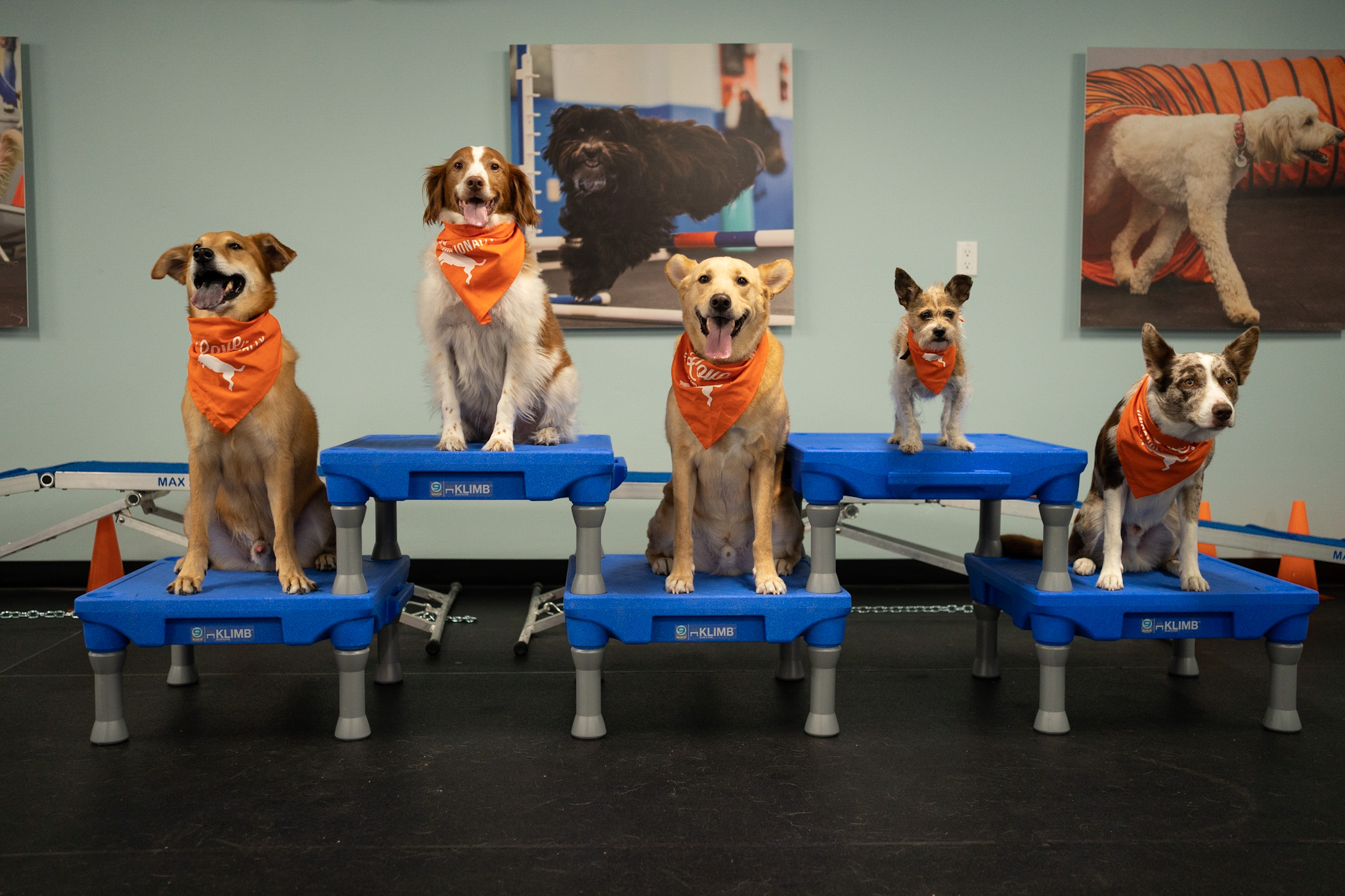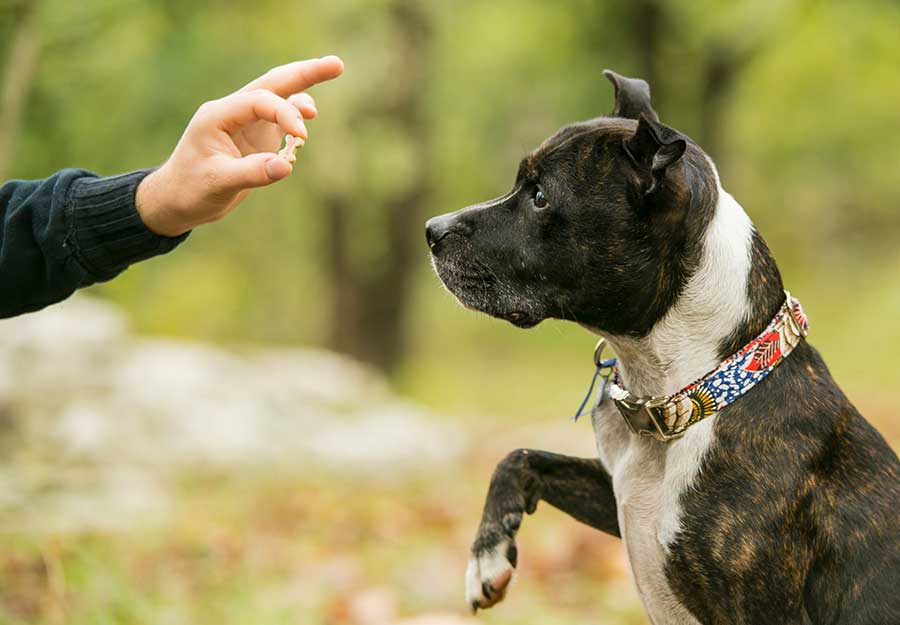Specialist Insights on Dog Training Charlotte NC: Transform Your Puppy Today
Specialist Insights on Dog Training Charlotte NC: Transform Your Puppy Today
Blog Article
Unlock Your Dog's Prospective: Proven Canine Training Methods for Success
Efficient canine training is a nuanced process that pivots on understanding canine actions and utilizing scientifically backed strategies. By integrating positive reinforcement, developing clear commands, and focusing on socialization, pet dog owners can cultivate an effective partnership with their pet dogs.
Comprehending Pet Actions
Recognizing pet dog actions is crucial for reliable training and fostering a favorable relationship between pet dogs and their proprietors. An extensive grasp of canine body movement, vocalizations, and social interactions is essential for acknowledging their emotions and needs. Canines interact largely via non-verbal cues; for instance, a wagging tail may suggest exhilaration, while pinned ears can indicate anxiety or submission.

Furthermore, environmental aspects play a substantial function fit a pet's actions. Modifications in regular, new environments, or the visibility of unfamiliar individuals can cause stress and anxiety or stress and anxiety in canines. Recognizing these triggers enables owners to alleviate damaging responses and develop ideal training strategies.
Ultimately, a deep understanding of pet dog habits lays the structure for successful training methods, enhancing both habits and the general bond between the dog and its proprietor. dog training charlotte nc. This knowledge is indispensable for cultivating a well-adjusted, happy canine buddy
Favorable Reinforcement Methods
Efficient training depends greatly on favorable reinforcement techniques, which have actually been revealed to produce considerable outcomes in forming preferred actions in canines. This technique involves awarding a canine for displaying details habits, therefore boosting the likelihood that these actions will be repeated. Incentives can take various types, including deals with, appreciation, toys, or play, depending upon what encourages the individual canine.

It is essential to progressively terminate benefits as the canine finds out the habits, transitioning to periodic support. This technique keeps the actions with time while protecting against reliance on continuous benefits. By concentrating on favorable support, fitness instructors can cultivate a relying on relationship with their dogs, promoting a healthy and balanced and cooperative training atmosphere that boosts overall obedience and performance.
Developing Constant Commands
A fundamental element of effective pet dog training is the facility of consistent commands. Uniformity in commands is vital for reliable communication between the trainer and the dog. When commands are uniform, dogs learn to connect particular words with wanted actions, which speeds up the training procedure and boosts understanding.
To develop constant commands, it is essential that all family members use the very same terms and motions. If one individual uses "sit" while an additional claims "sit down," it can produce confusion for the canine. Select clear, distinctive words for commands and make certain everybody involved in the Recommended Reading canine's training complies with these options.
In addition, repetition is key. Enhance commands with constant practice, making sure that the pet dog receives enough opportunities to react correctly. When a dog effectively adheres to a command, instant positive reinforcement needs to follow. This can be in the type of deals with, praise, or playtime, solidifying the link in between the action and the command.
Lastly, hold your horses. Developing constant commands takes some time and effort. With dedication and quality, you will certainly help your pet create a strong understanding of assumptions, eventually leading to a well-behaved friend.
Socialization and Exposure
Mingling a pet dog is crucial for fostering a well-adjusted and certain friend. This process entails exposing your canine to a selection of settings, people, and various other pets to establish their social skills and adaptability. Early socialization, ideally in between the ages of 3 to fourteen weeks, is crucial, as it lays the groundwork for a dog's future behavior.
During socialization, objective to provide positive experiences in different settings, such as parks, active roads, and homes with various other pet dogs. Introduce your pet to numerous stimuli, consisting of noises, sights, and scents, ensuring that each experience is rewarding. This direct exposure assists alleviate worry and anxiety, leading the way for a much more durable pet.
Participating in regulated group play sessions with other pet dogs can also improve social abilities, teaching your animal appropriate interactions and borders. Always monitor your pet dog's convenience level during these experiences, slowly increasing exposure as their self-confidence expands. Bear in mind, the goal is to produce an all-around pet dog that prospers in diverse circumstances, promoting an unified relationship with both human beings and other pets. Focusing on socializing will significantly add to your canine's overall joy and actions additional hints throughout their life.
Overcoming Common Training Challenges

One more frequent problem is interruption. Pets might battle to focus in hectic or unknown setups. Slowly desensitize your pet to interruptions by beginning training in a quiet setting and gradually introducing more stimulations as they come to be skillful (Dog training). Favorable reinforcement techniques, such as treats and appreciation, can keep inspiration and focus.
In addition, behavior problems like jumping or extreme barking can end up being irritating. Address these by teaching alternative behaviors, such as sitting comfortably when welcoming visitors. Consistency and patience are crucial; strengthen wanted habits continually and stay clear of abuse, which can result in confusion.
Last but not least, recognize that each pet is special, and training timelines might differ. Tailor your approach to your pet's private demands, and seek specialist assistance if required. With willpower and the right techniques, overcoming these difficulties can cause a well-trained, satisfied canine friend.
Conclusion
In conclusion, opening a canine's possible necessitates a comprehensive method that integrates an understanding of canine habits, the application of positive support methods, and the facility of constant commands. Early socializing and direct exposure to varied environments additionally improve a dog's flexibility and self-confidence. By attending to common training difficulties with tailored methods and persistence, a participating and harmonious relationship in between pet dog and handler can you can look here be cultivated, ultimately causing a well-behaved friend qualified of prospering in various scenarios.
Reliable dog training is a nuanced procedure that pivots on recognizing canine habits and employing scientifically backed approaches.Recognizing pet dog habits is crucial for effective training and promoting a favorable connection between pets and their owners.Efficient training depends heavily on favorable support methods, which have actually been revealed to produce considerable outcomes in forming desired behaviors in canines. When commands are uniform, canines learn to connect specific words with preferred habits, which accelerates the training process and enhances understanding.
In conclusion, opening a pet's possible necessitates a thorough strategy that includes an understanding of canine behavior, the application of positive support strategies, and the establishment of consistent commands.
Report this page